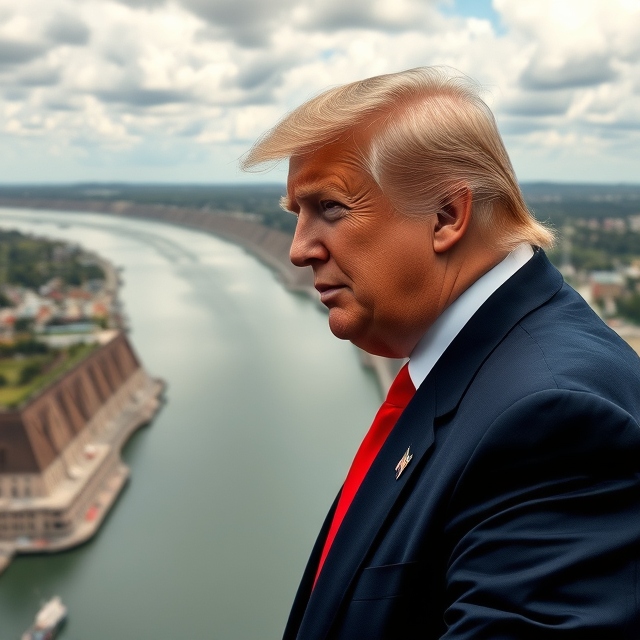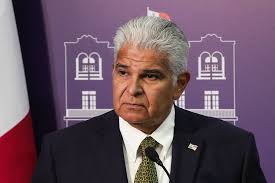
Geopolitical Concerns: Trump’s remarks on reclaiming the Panama Canal highlight U.S. concerns over growing Chinese influence in Latin America, particularly around strategic trade infrastructure.
Legal and Diplomatic Boundaries: Under the Torrijos-Carter Treaties, unilateral U.S. reclamation of the canal is legally impossible, showcasing the tensions between international agreements and national interests.
Economic and Strategic Importance: The Panama Canal remains a critical choke point for global trade, and any instability or geopolitical conflict surrounding it could disrupt global supply chains and U.S.-Latin American relations.
Donald Trump’s latest remarks on how the United States must regain the Panama Canal has once again reopened a long-debated question regarding American hegemony and strategic priorities in the Western Hemisphere. Trump said this in his address to a rally in Arizona where he accused Panama of overcharging American shipping on the fees and allowing Chinese influence over the critical passageway. His declaration, up to this point, has been largely symbolic but has drawn much attention from the officials in Panama, particularly on the implications for US-Latin America relations and stability in global trade.

The Panama Canal has long been one of the world’s most strategic waterways. Under US supervision and finished in 1914, the canal was an engineering marvel: a crucial facilitator for international trade; it could save thousands of miles by traversing ocean travel from the Atlantic to the Pacific Oceans. The Torrijos-Carter Treaties of 1977 ensured that the canal would become part of Panamanian possession by December 31, 1999. It was a landmark decision that established Panamanian sovereignty since it had guaranteed the neutrality of the canal and free access to world shipping.
Trump’s criticisms center on two primary points: alleged financial exploitation and geopolitical vulnerability. He described Panama’s fees on U.S. vessels as “unacceptable” and warned of China’s growing influence in the region. Notably, a Chinese state-owned company, China Harbour Engineering Company, has invested heavily in the area surrounding the canal, including port facilities. This has fueled U.S. concerns about Beijing’s strategic ambitions in Latin America, which Washington has traditionally considered its sphere of influence.

Panama’s government has responded strongly to Trump’s assertions. President Laurentino Cortizo emphasized that the canal remains under Panamanian control and operates according to international agreements that guarantee its neutrality. Panamanian officials pointed out that tolls are set based on operational costs and global market conditions, with revenues reinvested in maintaining the canal’s infrastructure. They dismissed Trump’s allegations as baseless and reaffirmed Panama’s commitment to transparency and fair treatment of all nations using the canal.
From a geopolitical point of view, Trump’s comments hint at a larger American policy to contain the increasing Chinese influence in Latin America. Beijing has been increasingly becoming an economic partner with most of the countries there, making investments in infrastructure, energy, and technology. Panama says that investments close to the canal by China are just business, but critics in America claim that they might as well serve as tools for Beijing to gain control over a strategic choke point in global trade.

Analysts would caution that this is no political rhetoric as, in fact, under the legal framework established by the Torrijos-Carter Treaties, there is absolutely no chance of unilateral reclamation of the canal by the United States. Yet his words reveal a trend among American policymakers who feel emboldened to challenge international norms and agreements in the pursuit of perceived national interests. That might be a strain in U.S.-Latin America relations if future policies would attempt to limit China’s regional engagement.
Economically, the canal is still significant to the world’s trade with more than 14,000 vessels passing every year carrying goods worth hundreds of billions of dollars. Among these, the United States is one of the largest users and any threat to its stability becomes a matter of national interest. Any form of negotiation to replace the administration or the control over the canal will invite worldwide opprobrium and even potentially cause ripple effects in global supply chains.
As to the broader context in which Trump’s foreign policy game plan is being played out, the comments are consistent with his America-first policy and his tendency to say outrageous things to an audience back home. Critics fear that kind of talk will damage established relationships and heighten tensions needlessly. Panama sees the Panama Canal as a source of national pride. Any suggestion of US control will be strongly resisted.
In the end, Trump’s message to reclaim the Panama Canal underlines very complex dynamics between history, economics, and geopolitics that will continue to mould U.S.-Latin American relations. Although action of this sort is unlikely to occur, it brought this point to fore: while the changes which the construction of the canal underlines have indeed shifted the world, the canal itself remains salient in world affairs.
Saisha is pursuing a Bachelor of Diplomacy and Foreign Policy at the JISA, O.P. Jindal Global University. Her areas of interest include economics, business, diaspora studies, and diplomacy. Views expressed are the author’s own.
